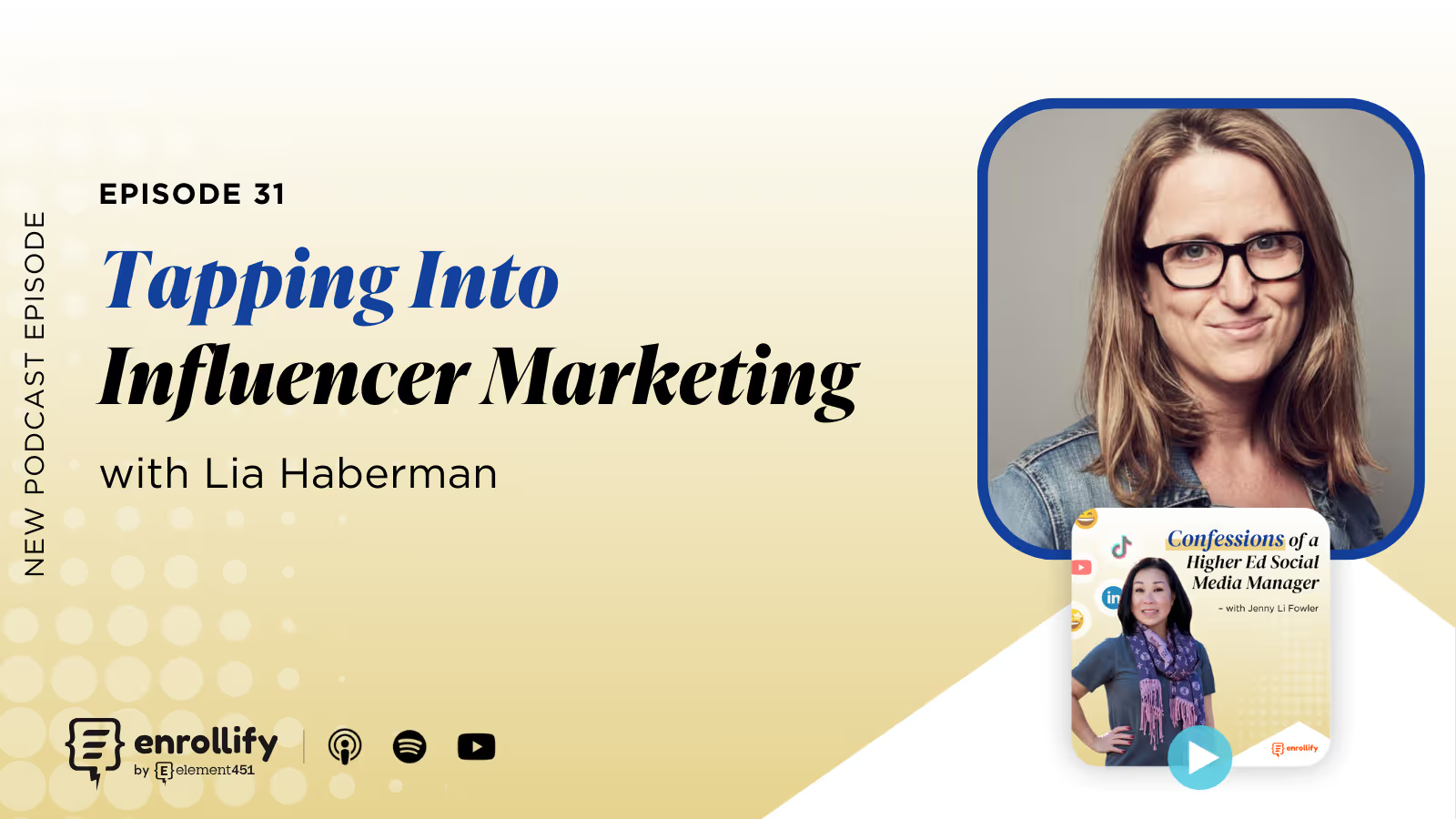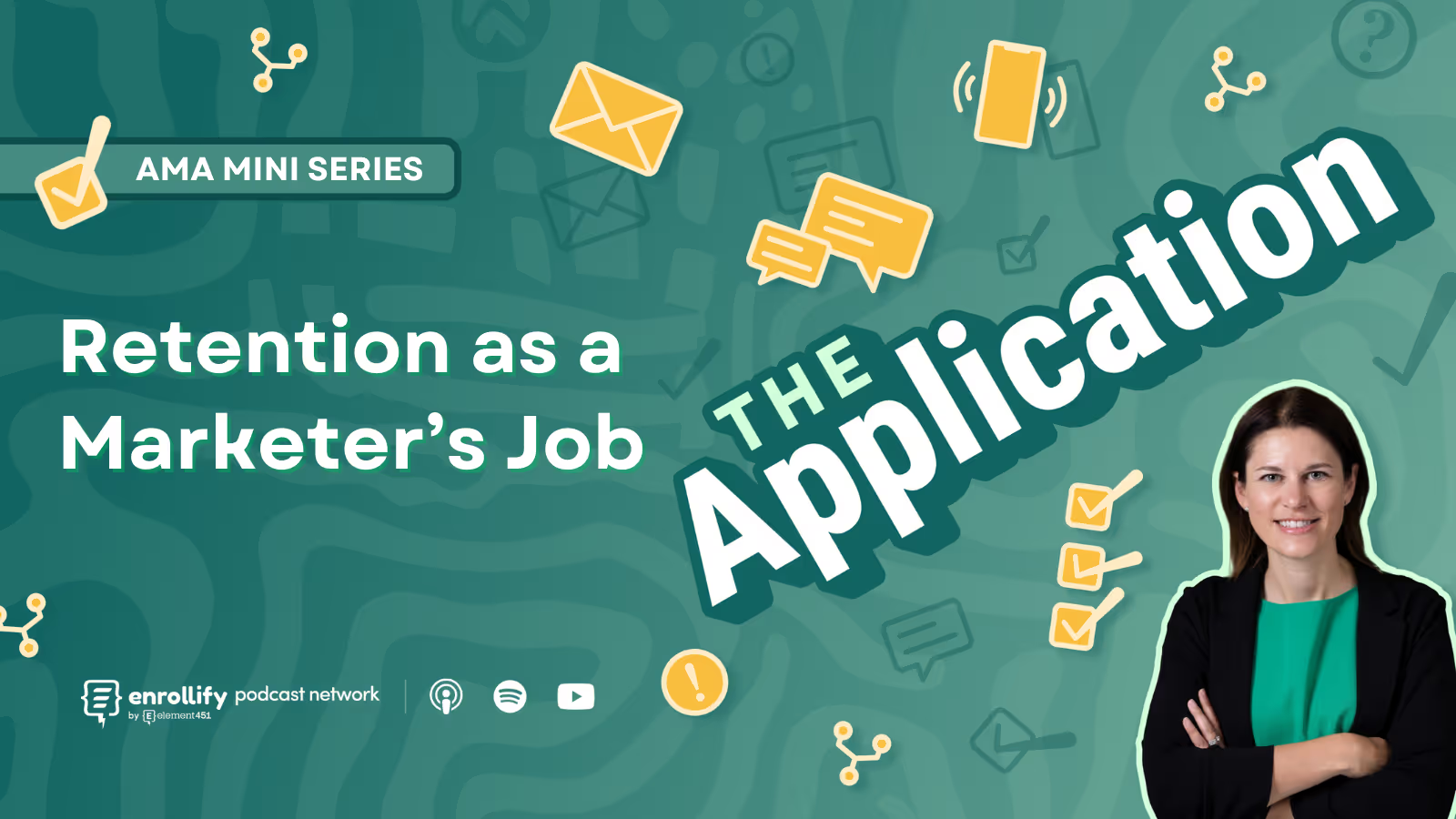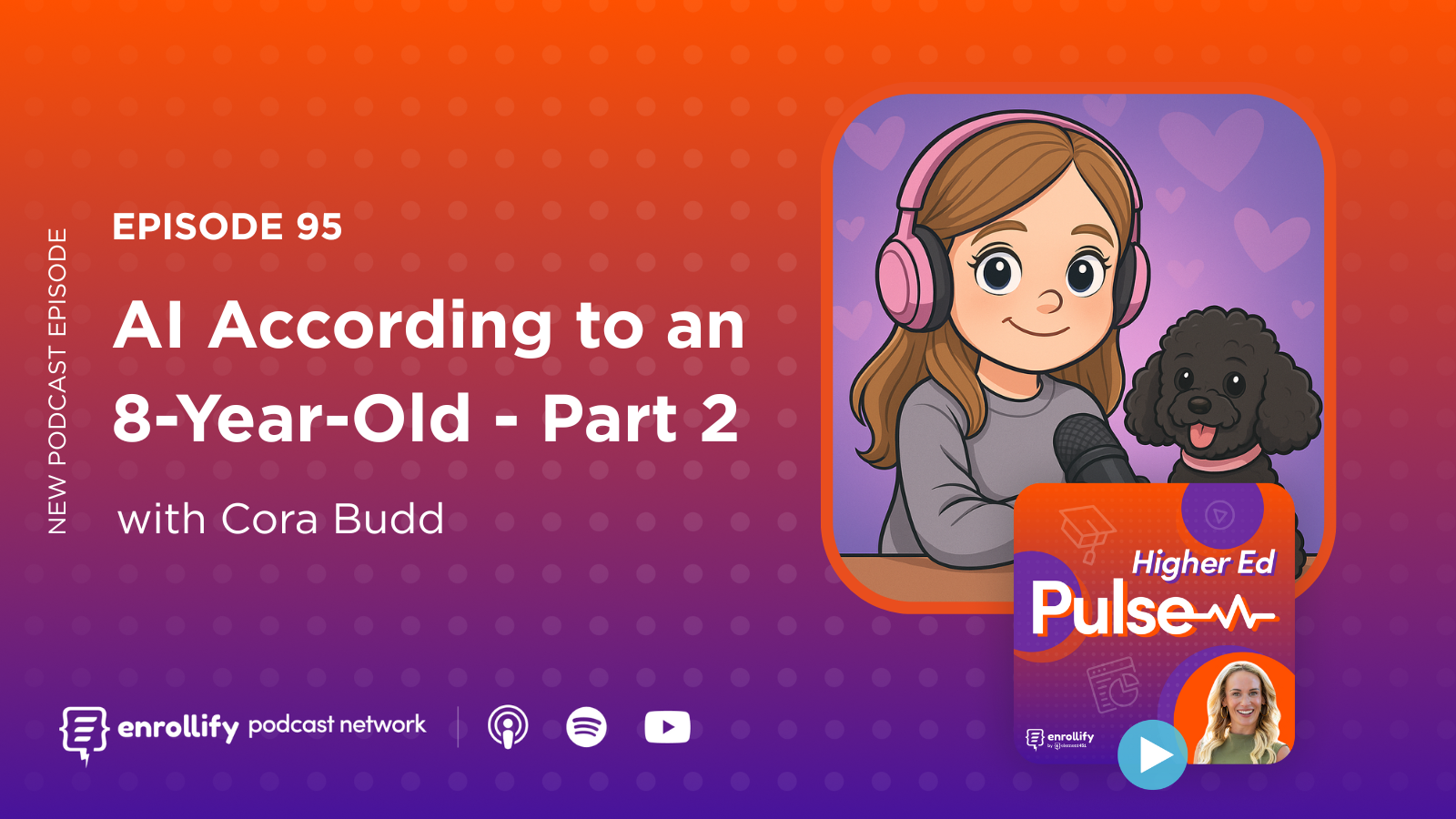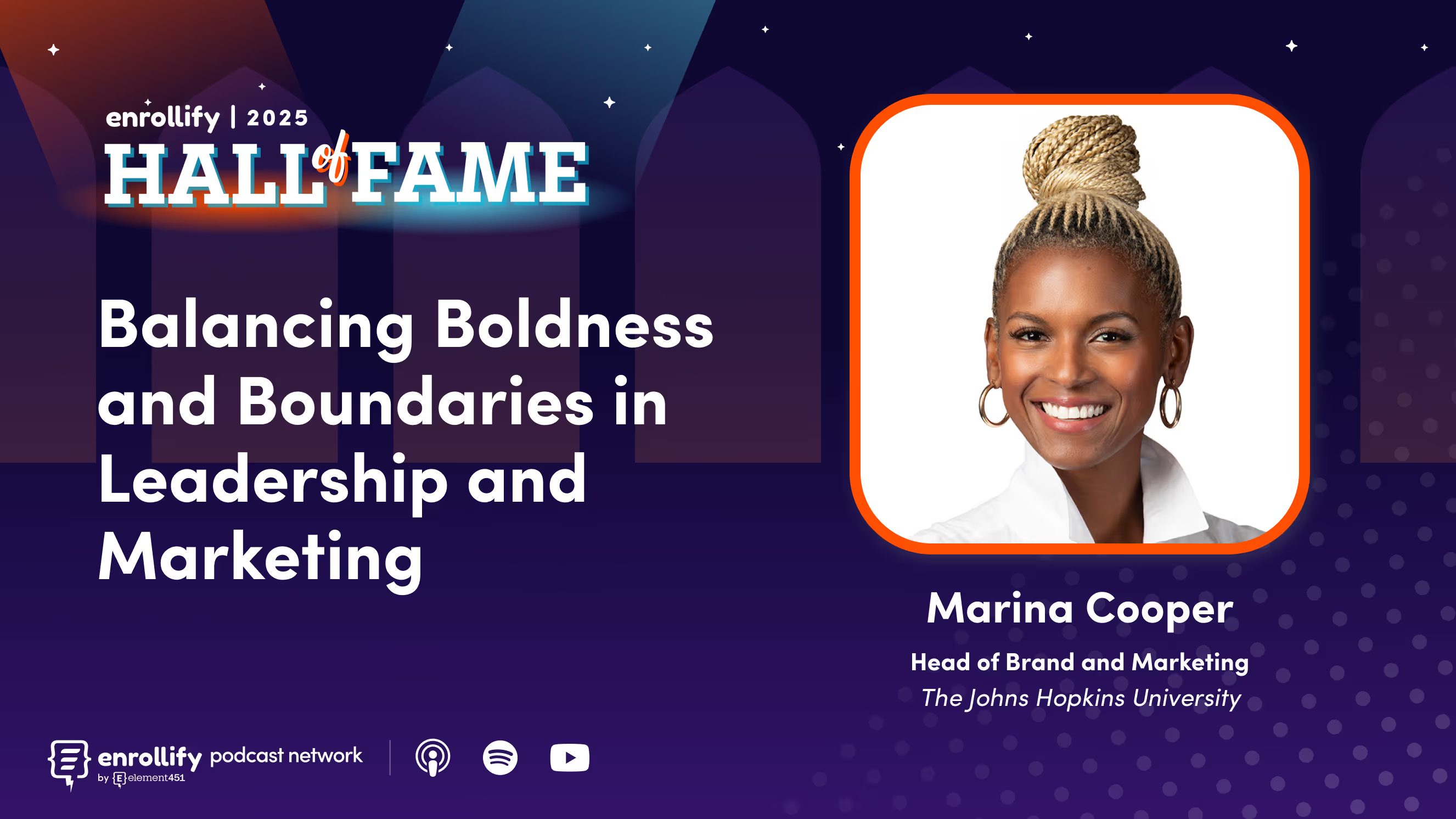About the Episode
Got a story to tell? An innovative idea to share? Fill out our guest nomination form and let's chat!
About the Episode:
Host Jenny engages with Lia Haberman, a creator economy expert, to unpack the role of influencer marketing in higher education. Fresh off a visit to the White House, Lia shares insights into the evolution of the creator economy, how influencers shape audience engagement, and actionable strategies for integrating influencer marketing into university communications.
Key Takeaways
- Influencer Marketing vs. Creator Economy: Understand the difference between influencers promoting brands and the larger ecosystem enabling creators to thrive.
- Why Higher Ed Needs Influencers: Institutions can leverage influencers, including students, alumni, and faculty, to amplify messages authentically.
- Building Relationships with Influencers: Collaborate with influencers through budget-friendly approaches like campus events, content partnerships, or passion-driven projects.
- Start Small and Local: Many influencers with niche audiences, such as professors or student athletes, can create meaningful connections without hefty price tags.
- Stay Current: Keeping up with newsletters, books, and conferences helps higher ed marketers navigate the rapidly evolving influencer landscape.
Episode Summary
What Is Influencer Marketing?
Lia Haberman defines influencer marketing as a brand's collaboration with influencers to promote its products or services to their audiences. She explains that this is a subset of the broader creator economy, which encompasses the platforms, tools, and businesses supporting influencers. While influencer marketing has evolved from simply posting product ads, its role remains vital in creating relatable and impactful connections.
For higher ed, influencer marketing means leveraging students, alumni, and faculty to act as relatable amplifiers for the institution's messaging. Haberman notes that while traditional marketing can feel impersonal, influencers offer a genuine voice, fostering trust and engagement.
Why Higher Ed Should Embrace Influencers
Higher education is notoriously slow to adopt new trends, but Lia emphasizes the benefits of integrating influencer marketing into university strategies:
- Reach Gen Z and Gen Alpha: These demographics trust influencers and prefer authentic, peer-led communication over institutional messaging.
- Evolve Beyond Celebrities: Influencers today include professionals, experts, and niche creators, making the strategy accessible to universities with diverse audiences.
- Build Relatable Content: Influencers excel at creating compelling content that resonates with their audience, often outperforming traditional advertising.
Lia encourages institutions to think locally, identifying influencers within their community, such as star student-athletes, faculty with niche audiences, or alumni with strong online presences.
Finding and Collaborating with Influencers
When it comes to sourcing influencers, Lia suggests the following:
- Social Listening: Observe who your students engage with online. Tools can help, but even manual research—like monitoring social media interactions—yields insights.
- Personal Outreach: Sliding into DMs with genuine compliments or proposals can open doors for collaboration.
- Creative Compensation: Not all partnerships require big budgets. Consider offering speaking opportunities, awards, or aligning with the influencer's passions to add value.
For example, a university might work with a prominent alumni influencer to create content showcasing campus life. The collaboration doesn’t have to break the bank—highlighting shared values or giving access to unique resources can be enough.
Influencer Marketing on a Budget
Higher ed marketers often face budget constraints, but Lia stresses that great partnerships are still possible. Micro-influencers or creators with smaller, engaged followings can be affordable and impactful. Additionally, repurposing influencer-created content for institutional social media channels can stretch limited resources.
Institutions can also look internally for influencers. Professors with expertise, athletes, or even enthusiastic students can act as authentic voices for the university. Lia highlights examples like Stephen Nedorazek, an Olympian and Penn State student whose collaboration with the university has amplified its reach.
Staying Informed in a Rapidly Evolving Space
Lia recommends staying current through newsletters, books, and conferences. For beginners, she suggests resources like her own newsletter, In Case You Missed It, as well as other thought leaders like Rachel Karten and Lindsay Gamble. Regularly attending events like VidCon or VidSummit can also provide inspiration and insights into the latest trends.
About the Show: Confessions of a Higher Ed Social Media Manager covers the do's, don'ts, and dynamics of the complex and challenging social media ecosystem. We analyze the successes and failures of those in the higher education social space — what went right, what went wrong, and what are the lessons learned. We’ll share actionable steps so you can push past the pitfalls others have faced. No matter if you're on a team of 20 or a team of one, we've got you covered. Confessions of a Higher Ed Social Media Manager is hosted by Jenny Li Fowler and is a proud member of the Enrollify Podcast Network.
Connect With Our Host:
https://twitter.com/TheJennyLi
About The Enrollify Podcast Network:
Confessions of a Higher Ed Social Media Manager is a part of the Enrollify Podcast Network. If you like this podcast, chances are you’ll like other Enrollify shows, too!
Some of our favorites include Higher Ed Pulse and Confessions of a Higher Ed CMO.
Enrollify is produced by Element451 — the next-generation AI student engagement platform helping institutions create meaningful and personalized interactions with students. Learn more at element451.com.
Attend the 2025 Engage Summit!
The Engage Summit is the premier conference for forward-thinking leaders and practitioners dedicated to exploring the transformative power of AI in education.
Explore the strategies and tools to step into the next generation of student engagement, supercharged by AI. You'll leave ready to deliver the most personalized digital engagement experience every step of the way.
👉🏻 Register now to secure your spot in Charlotte, NC, on June 24-25, 2025! Early bird registration ends February 1st.















